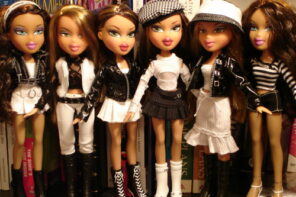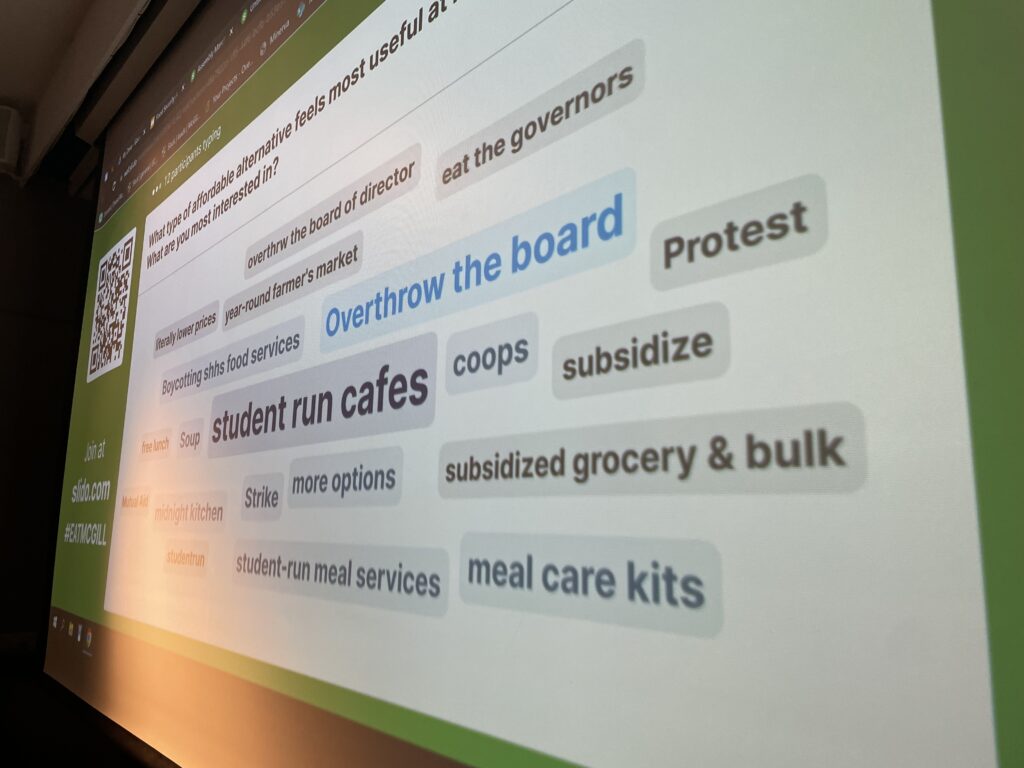Chidera Eggerue, also known by her pen name and social media persona The Slumflower, is a feminist activist, author, and artist. She will hopefully also be your new favourite companion during this isolation season. Eggerue rose to Internet fame in 2017 after creating the body positivity movement #saggyboobsmatter. She followed that success with another, smaller hashtag trend, #dumphimparty. In 2018, Eggerue published her first book, What a Time to Be Alone, recently followed by her new release, How to Get Over a Boy. While her two books and much of her other work, like the recent documentary she created with Channel 4 on “bring[ing] back the bush,” focus on different topics, the core message of her work is always the same. Eggerue wants you to learn to love yourself so deeply that you do not need the love and validation of others. Simply put, she wants you to decide that you are enough.
Much of Eggerue’s work revolves around dating men as a heterosexual woman. This is not to say that her lessons and message cannot be applied generally — in fact, that is what I find most compelling about her work, that any individual can use her teachings of self-love — but her focus is on heterosexual dating specifically. Her Instagram in particular is full of advice on becoming “indifferent” to men, so that one can be critical in romantic relationships and ensure that partners are always adding value, rather than draining energy, time, and emotional labour.
Eggerue wants you to learn to love yourself so deeply that you do not need the love and validation of others.
It is worth noting that to Eggerue, “value” in romantic relationships takes the form of financial compensation and support. She is steadfast in her belief that men should be financial providers in relationships. While this may seem like the view of a 1950’s housewife, what Eggerue really means is that while a woman should always be able to provide for herself financially, emotionally, even sexually, the man in a heterosexual relationship must make it worth the woman’s time. He can do so by paying for dates, giving gifts, supporting schooling costs, or any other financial or material desire. Understandably, this idea has raised some controversy. Regardless of whether you subscribe to this particular view of Eggerue’s, it has benefitted her, and many other women, as shown through the success stories Eggerue posts on her page.
There are many different streams of feminism, some accessible and some not. Today, much of Internet “feminist activism” consists of empty, performative reposts of images in pastel colours taken from various accounts. Instagram accounts like Feminist are filled with aestheically pleasing posts of cartoons and photos telling the observer that “your respect should not depend on an outfit,” or “Against abortion? Get a vasectomy!” These are perfectly good points, but any brief venture into feminist literature or real activist groups will demonstrate that the problem of patriarchy goes a lot deeper than just body positivity and the idea of choice. While reposting images that encourage social justice is not nothing, it is also not in itself effecting social justice. On the other hand, intellectual feminist discourse, while originating in woman-to-woman consciousness-raising groups and dialogue, now exists largely in the ivory tower of academia. It is all well and good to repost an image stating that “we should all be feminist,” but it is quite another to analyze and engage with Judith Butler’s conception of performative gender. Both of these forms of “feminist practice” — whether reposting images or studying feminist theory — are worthwhile, but they are not always the best means to enacting change in your own life. While the Slumflower’s work can seem like just another self-help book, the change of perception she encourages radically reconstructs the way women see themselves, other women, men, and dating as a whole. Eggerue is providing her audience with real tools and guidance on how to enact change in oneself, something that is not always easy to find in much feminist literature.
https://www.instagram.com/p/Bw7u6kzggID/?utm_source=ig_web_copy_link
Eggerue has also been criticized for a variety of reasons, most significantly (and most fittingly) for the simplicity of her feminist politics and her inability to properly use and engage with the language and concepts that she is simplifying for her followers. In an article for online publication Trench, writer Danielle Dash claims that Eggerue’s “simplistic feminism works to grant access for people unfamiliar with the politics but buckles under the greater weight of critical thinking.” On Father’s Day of 2018, Eggerue tweeted “[t]he only solution to ensure the safety of women, is for men to not exist.” Dash draws on this tweet, and other similar tweets of Eggerue’s to highlight how Eggerue’s activism can often oversimplify problems for the sake of sensationalism. Dash claims that the tweet “left too much room for ambiguity, conflated men with the patriarchy, and encouraged readers to proffer wild interpretations[,]” all of which is detrimental to a mature feminist politic.
Eggerue is providing her audience with real tools and guidance on how to enact change in oneself[.]
The critique offered by Dash is a valuable one, and certainly worthy of consideration. However, I would still recommend Eggerue and her work given that she is not a serious feminist theorist; she is a social media activist and self-help author. That does not diminish her value in the space of feminist discourse, but it does mean that her work is not necessarily supposed to stand up to the kinds of criticisms leveled at it and her. In an interview with Vogue, Eggerue explains the simplicity of her feminism:
“I think so many books that aim to empower people with knowledge and deal with conversations around race and class use terminology that can put you off if you’re not familiar with it… I didn’t want to use words that might intimidate people and then close them off from the deeper message. For us to take part in a much larger shift of consciousness as a whole generation of people, we have to make sure we are making these conversations as accessible as possible, or it will only benefit some people.”
Eggerue is very much worth some exploration. You may not love every aspect of her or her advice, but learning to love being alone is always valuable.








